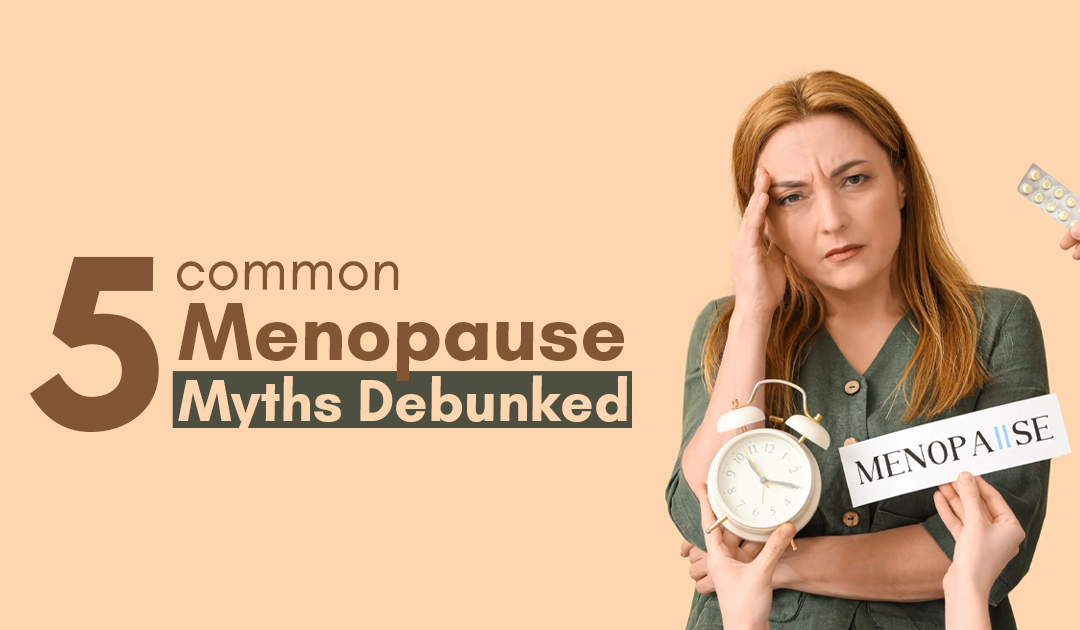Women, we get it. Menopause can be a difficult transition to deal with. But it is important to remember that you’re not the only one sailing the boat. While it is a universal experience among women and those assigned female at birth (AFAB), it is not as much a topic of conversation as it should be. When asked, several women agree that they have little or no knowledge of menopause, which leaves room for misconception and confusion.
To understand what menopause truly is, let us look at the top five common menopause myths and break them down.
Menopause = Hot Flashes.
When your ovaries fail to produce hormones, your ovulation comes to a halt. This event may be a difficult period for both your mind and body. However, there is more to menopause than vasomotor symptoms, also known as hot flashes and sweating at night. There may also be hormonal changes caused by your resting ovaries, such as disturbances in sleep, problems remembering things, and dryness in your vagina. There may also be emotional symptoms such as unexpected mood swings, depression and decreased sexual drive. You may also experience decreased bone and joint strength. It is important to note that while some may experience a spectrum of symptoms, others may have no symptoms at all.
Menopause Is Only For a Short Duration of Time.
Menopause isn’t merely for 12 months. It may consist of a perimenopausal stage and menopausal symptoms that start showing several years before the actual menopause. Some may experience extreme pain during the perimenopausal phase, which may extend into menopause as well. The symptoms generally cease to exist five years post your final period, meaning that some people may face them for years.
Hormone Therapy means Danger.
Your body is constantly at a loss of hormones such as estrogen, progesterone, or a mix of both. To supplement that, Hormone Therapy (HT) is recommended. While there is evidence that a combination of Hormone Therapy (HT) may make you prone to breast cancer if consumed religiously for five years, it is also true that when prescribed at the lowest dose for a shorter duration, hormone therapy can manage menopausal symptoms without causing any damage to the people. Talk to your gynecologist for more information on this.
Menopause Makes You Fat.
Yes, menopause may make you gain weight but it is not so in all cases. There is indeed a shift in body composition that consists of changes in fat storage with an increased accumulation of fat in the lower torso near the area of your abdomen. It is also important to note that both these factors are not always directly causative at all times.
You Cannot Escape Menopausal Symptoms.
While menopause is a universal experience that you cannot skip, it can be minimized by using several treatment options. For instance, a contraceptive pill with a lower dosage can help regulate bleeding issues and reduce vasomotor symptoms during perimenopause. You may avoid alcohol and caffeine to prevent hot flashes and take the help of cognitive behavioral therapy, meditation, and mindfulness practices for symptom management. Certain antidepressants can also help with symptoms linked to depression or anxiety related to menopause. Moreover, there are topical treatments that can relieve vaginal dryness and discomfort during sex.
It is important to note that your symptoms do not have to be debilitating or overwhelming to consult a doctor. If you’re feeling under the weather and your symptoms make your routine life difficult, speak to a doctor today and find personalized solutions that work best for you.

